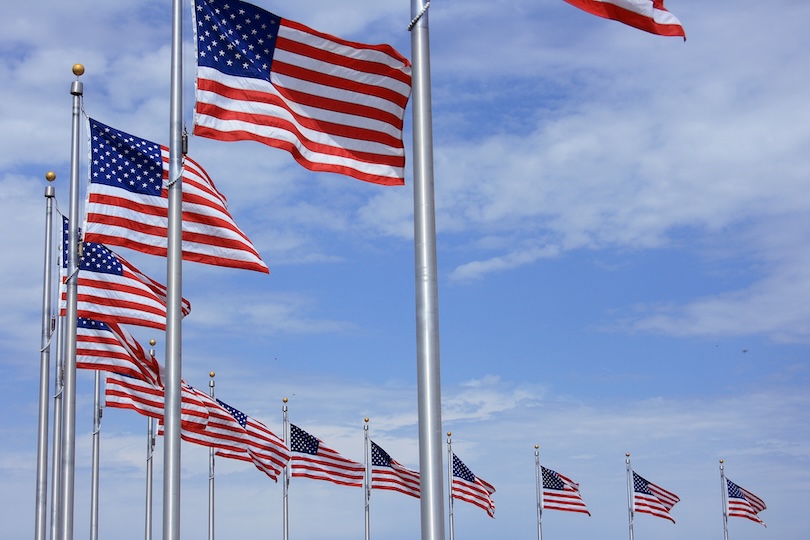The Impact of American Exceptionalism on U.S. Foreign Policy
Introduction to American Exceptionalism
American exceptionalism is a powerful and enduring narrative that asserts the United States holds a unique position in the world, characterized by a moral mandate to lead and a distinct national identity separate from other nations. This concept has profoundly influenced U.S. foreign policy throughout history, shaping approaches across various presidential administrations. Its implications extend well beyond mere ideology, significantly affecting international relations and domestic politics, especially in the context of the post-Cold War era.
Historical Context and Evolution
The roots of American exceptionalism can be traced back to early American history. Alexis de Tocqueville famously highlighted America’s unique traits in Democracy in America (1839). Early Puritan settlers viewed their new homeland as a "city upon a hill," a chosen nation with a divine mission. This belief was further fortified by the revolutionary impetus for independence in 1776, creating a national identity that diverged from colonial origins and established a sense of superiority over other nations.
As the nation emerged from the Revolutionary War, this notion continued to morph. Authors like Ceaser (2012) argued that exceptionalism can denote something special about America, implying a moral obligation to spread democracy and liberty globally. This imperialist mindset would later justify unilateral actions under the guise of promoting a supposedly universal set of values.
American Exceptionalism from the Clinton to Trump Administrations
In examining the transformations of American exceptionalism, it is crucial to analyze its application across different administrations, particularly from Bill Clinton to Donald Trump. Each president has adapted the concept to shape their foreign policy decisions, often reflecting the prevailing global landscape and domestic imperatives.
Clinton Administration: The Era of Selective Humanitarianism
Under President Bill Clinton, American exceptionalism manifested as selective humanitarianism. The end of the Cold War positioned the U.S. as the last remaining superpower, giving it the agency to intervene in international conflicts where it saw fit. During the Bosnian War, Clinton criticized the previous administration for neglecting the atrocities, advocating for a more assertive U.S. role. His interventionist stance underlined a belief in America’s duty to protect human rights and promote democracy, despite the selective nature of such interventions, as seen in the Rwandan Genocide, which garnered far less attention.
The Bush Doctrine: A Crusade Against Evil
George W. Bush’s presidency marked a dramatic escalation in the rhetoric of American exceptionalism, particularly following the September 11 attacks. Bush framed U.S. foreign policy around a binary worldview of "good versus evil," wherein America emerged as the primary defender of freedom against threats like terrorism. The invasions of Afghanistan and Iraq were framed as necessary interventions to uphold this moral high ground, though critics noted that such policies often led to significant international backlash and questions regarding their legality and ethical implications.
Obama and the Redefinition of Exceptionalism
President Barack Obama brought forth a more nuanced approach, aptly termed "leading from behind." This strategy sought to collaborate with international partners, signaling a move away from unilateral interventions. Obama’s administration continued to uphold a belief in American exceptionalism but redefined it to align with multilateralism and diplomacy. For instance, the intervention in Libya was initially framed as a humanitarian effort but quickly morphed into regime change, illustrating the persistence of exceptionalist undercurrents even in ostensibly collaborative strategies.
Trump’s Shift: Personalizing American Exceptionalism
Donald Trump’s approach marked a significant pivot, as he emphasized "America First." His populist narrative capitalized on feelings of nostalgia and discontent among American voters, particularly those feeling marginalized by globalization. Trump’s rhetoric shifted from a collective American exceptional identity to a more individualistic portrayal, centering on his personal vision of restoring America’s former glory. This included skepticism towards multilateral institutions and agreements, positing that they undermined U.S. sovereignty and power.
The Paradox of American Exceptionalism
While American exceptionalism has fostered the idea of the U.S. as a moral leader, it simultaneously introduces inherent contradictions. The notion that America is above international law is often at odds with established norms governing global behavior. This "exemptionalism" has led to significant debates surrounding the legality and morality of U.S. actions, particularly in military interventions and the use of drones, with critics questioning whether these actions truly align with the democratic values Americans claim to promote.
Such contradictions are particularly evident in the context of humanitarian interventions, where motivations often blend altruism with strategic interests. Critics argue this selective intervention approach not only undermines the values America espouses but raises questions about its commitment to international law.
Conclusion on Ongoing Implications
Understanding the evolution of American exceptionalism across these administrations illuminates not just how it has shaped foreign policy decisions but also its ramifications for international stability and U.S. standing in the world. As the geopolitical landscape continues to evolve, particularly with the rise of new powers and global challenges, the ways in which American exceptionalism adapts will be crucial in delineating the future of U.S. foreign policy, as well as its ability to navigate the complexities of an increasingly multipolar world.

